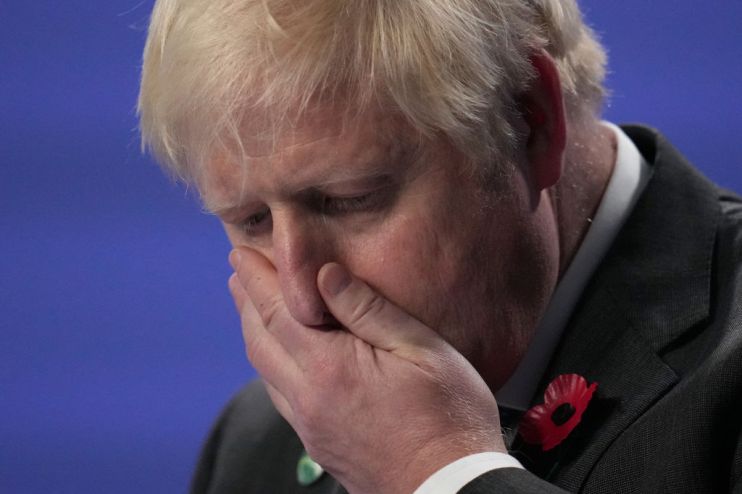The bloodletting of Boris Johnson was a question of quitting before or after midday

Whoever created the term the “Great Resignation” had likely not planned to be a soothsayer for Boris Johnson’s government but, if there are still any staff left in No10 this morning, they should offer their services as a superforecaster.
Yesterday, five cabinet ministers resigned in one go, on one piece of paper, and that was the least of it for the Prime Minister, as was Keir Starmer’s uncharacteristic crucifixion of his leadership.
“The sinking ship is fleeing the rat,” he bellowed in Prime Minister’s questions, as another minister, Jo Churchill, popped off a message announcing she was out too.
While his government was collapsing around his ears, Boris Johnson spent a somewhat bizarre 70 minutes having relatively dull policy points picked apart by MPs in the House of Commons Liaison Committee. He answered questions on pretty much everything except the swelling number of letters he would have to bitterly write thanking people for serving in his government.
We heard: Britain needs to be more self-sufficient on fertiliser stock, we need to look at more catch-up programs for schools, imperial measurements are an important thing for our national identity and how we price our roads needs to change with our changing transport habits.
In that space of time, five more MPs on the government payroll had resigned, including the minister for safeguarding Rachel McLean.
One of the last women standing, if you don’t count Nadine Dorries, appeared to be Penny Mordaunt, widely touted as a leadership hopeful. Mordaunt was in the navy, afterall, so perhaps she thought if she went down with the ship they might just make her captain.
There were also reports ministers were deeply concerned that by 2pm yesterday, resigning had simply become “too fashionable”, as if handing in their letter was akin to wearing a Michael Kors handbag.
Some even tried to spice it up, such as Fay Jones, who didn’t outright resign, but said she would unless the Prime Minister didn’t, the political equivalent of “would you rather?”
By the time the Liaison Committee moved onto the pointy end of the session on “integrity”, Johnson was down 33 members of his government.
And trouble was still ahead: William Wragg had brushed up on the latest season of The Crown and began grilling the PM on the Lascelles Principles, which give Buckingham Palace the right to refuse a general election.
Johnson gathered himself, hiked his shoulders up to his ears and declared in a staccato: “You’re asking about something that is not going to happen.”
In a slightly more demure tone: “Unless of course, everyone is so crazy to, um, try and, you know, you know, have a new-”.
A new, what, you ask? A knight in shining army pushed notes in front of him, appearing to urge him to call The Situation nothing more than a “political disturbance” that was momentarily preventing the government from delivering on their priorities. Didn’t they remember Nadhim Zahawi had promised tax cuts only that morning?
Everyone, clearly, was crazy in the end. Perhaps concerned with the delicate question of what was the most chic way of bringing down the government, a number of his cabinet ministers had formed what quickly became known as The Delegation.
This Super Squad, with Michael Gove at its helm, sat the Prime Minister down like a family worried about the alcohol-consumption of their teen son, and told him he had to go. Go, or we will.
